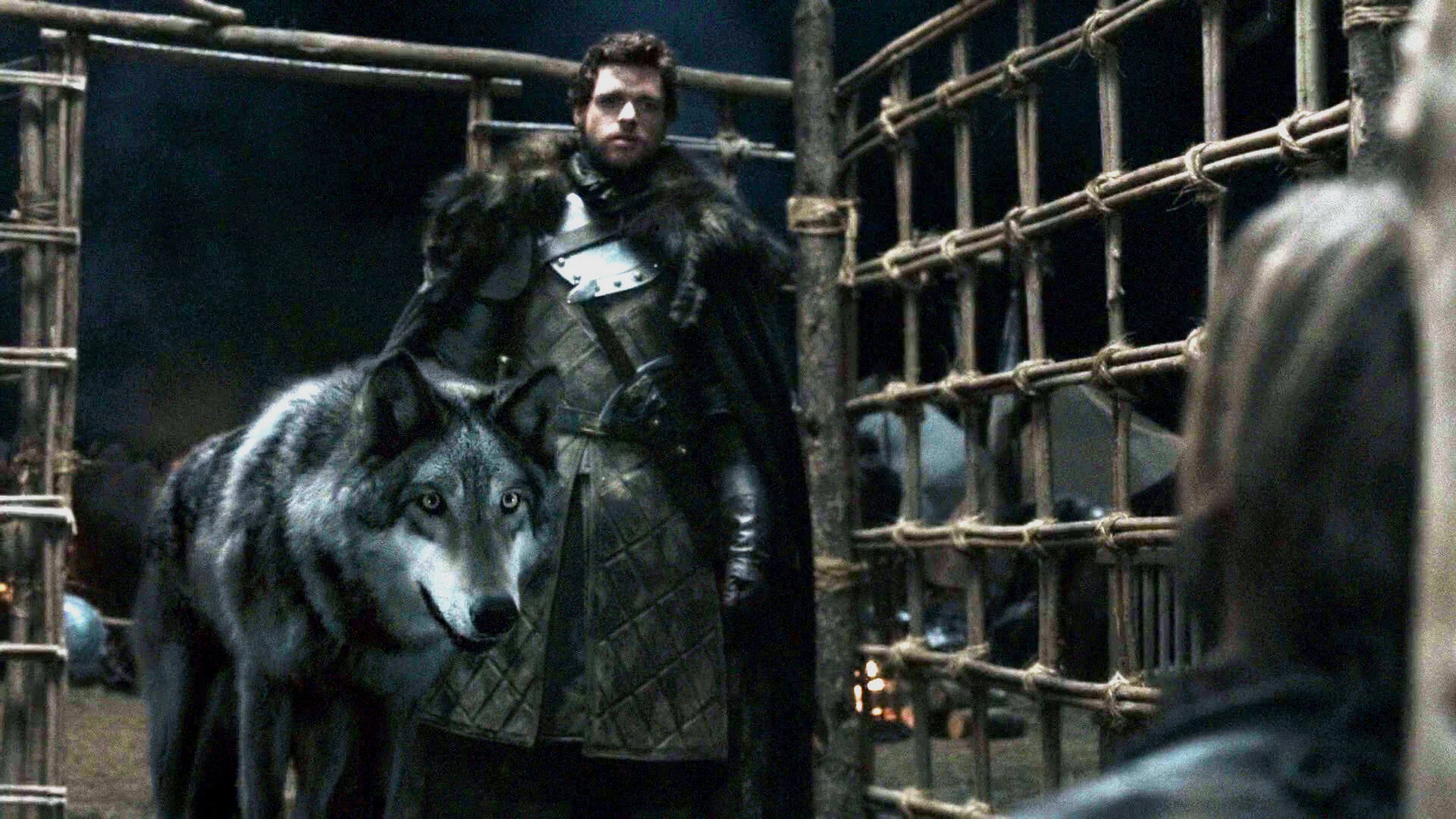In the sprawling world of "Game of Thrones," direwolves are not just pets; they are symbols of loyalty, strength, and the Stark family's deep connection to the North. Each direwolf's name carries a rich narrative, echoing the traits of its Stark counterpart. From the wild and fierce to the loyal and protective, these majestic creatures embody the spirit of their human companions. This exploration of direwolf names in "Game of Thrones" reveals not only the significance of these names but also the profound bond between the Starks and their direwolves.
As we delve into the lore of Westeros, we discover that direwolves are more than mere animals; they are integral to the identity of House Stark. Each direwolf serves as a reflection of its Stark owner, manifesting qualities that align with the Stark family values—honor, bravery, and loyalty. The direwolf names serve as an essential part of the story, helping to convey the deep emotional connections and fierce loyalty that the characters share.
The direwolf names in "Game of Thrones" also present an opportunity to explore the themes of family, loss, and the harsh realities of life in Westeros. As we analyze the direwolf names and their meanings, we gain insight into the characters' journeys and the trials they face. Join us as we embark on this journey to uncover the direwolf names in "Game of Thrones" and what they symbolize in the epic tale of power, betrayal, and survival.
What Are the Direwolf Names in Game of Thrones?
In "Game of Thrones," the direwolves are closely linked to the Stark family, each representing a member of the family. Here are the direwolf names and their respective Stark owners:
- Ghost - Jon Snow
- Nymeria - Arya Stark
- Summer - Bran Stark
- Shaggydog - Rickon Stark
- Lady - Sansa Stark
What is the Significance of Each Direwolf Name?
Each direwolf name is steeped in meaning and reflects the personality and journey of its Stark counterpart. Let's explore the significance of each name:
- Ghost: Named for his pale, white fur, Ghost embodies Jon Snow's sense of isolation and loyalty. His fierce nature mirrors Jon's struggle against the odds.
- Nymeria: Arya's direwolf is named after a warrior queen, symbolizing Arya's fierce independence and desire for vengeance.
- Summer: Bran's direwolf represents hope and the connection to the North, embodying Bran's journey of growth and discovery.
- Shaggydog: Named for his wild and untamed nature, Shaggydog reflects Rickon's struggle and the harsh realities of survival.
- Lady: Sansa's direwolf represents loyalty and femininity, mirroring Sansa's own journey from innocence to resilience.
How Do the Direwolves Reflect the Stark Family Values?
The direwolf names in "Game of Thrones" serve as extensions of the Stark family's values. Each direwolf embodies traits that resonate with the characteristics of its owner, reinforcing the idea that the Starks are a family bound by loyalty and honor. For instance, Ghost's unwavering loyalty mirrors Jon Snow's commitment to his family and his cause, while Nymeria's fierce spirit reflects Arya's determination to carve her own path in a world that tries to dictate her fate.
What Are the Fates of the Direwolves in Game of Thrones?
The fates of the direwolves are intertwined with the destinies of their Stark counterparts, often reflecting the harsh realities of the world they inhabit. Some direwolves meet tragic ends, while others symbolize hope and resilience:
- Ghost: Survives throughout the series, a testament to Jon's enduring spirit.
- Nymeria: Becomes a leader of a pack, reflecting Arya's growth and independence.
- Summer: Dies protecting Bran, showcasing the protective nature of direwolves.
- Shaggydog: Meets a tragic end, symbolizing the loss faced by the Stark family.
- Lady: Executed early in the series, representing the harsh realities of life in Westeros.
Why Are Direwolves Important to the Stark Family?
Direwolves symbolize the Stark family's connection to their Northern roots and their commitment to honor and loyalty. They serve as protectors, companions, and reflections of the Stark siblings' journeys. The direwolves' presence reinforces the idea that the Starks are a family that values the bond between them and their direwolves, highlighting the themes of love, loss, and resilience that permeate the series.
How Do Direwolf Names Enhance the Storytelling in Game of Thrones?
Direwolf names in "Game of Thrones" add depth to the storytelling by providing insight into the characters' personalities and journeys. The names serve as symbols, enriching the narrative and allowing viewers to connect with the characters on a deeper level. The direwolves' fates often parallel those of their Stark counterparts, emphasizing the consequences of choices made in a world fraught with danger and betrayal.
Conclusion: What Can We Learn from Direwolf Names in Game of Thrones?
The direwolf names in "Game of Thrones" are more than just titles; they encapsulate the essence of the Stark family and their struggles against the backdrop of a tumultuous world. Through their names and fates, the direwolves reflect the values of loyalty, honor, and resilience, serving as powerful symbols throughout the series. As we reflect on the direwolf names in "Game of Thrones," we gain a deeper appreciation for the storytelling and the intricate connections that bind the characters to their beloved companions.


